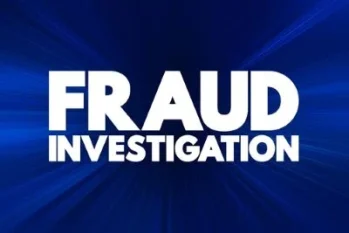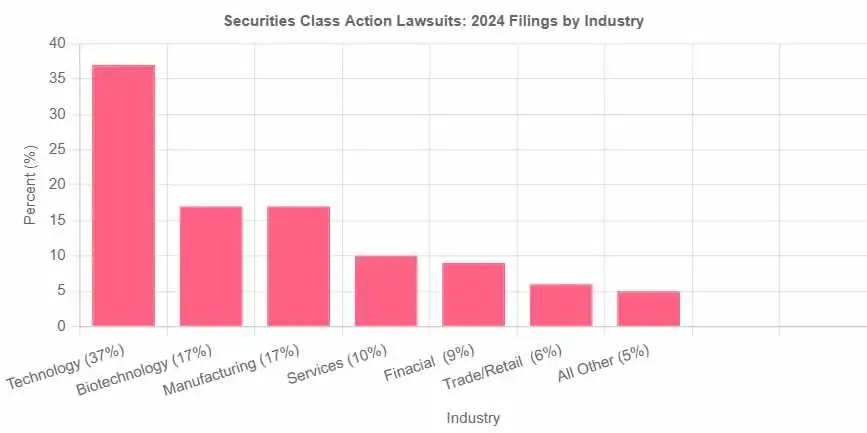Introduction to International Securities Class Actions

International securities class actions are a critical mechanism in the global financial landscape, allowing investors from around the world to seek redress for losses incurred due to securities fraud. Such class actions are a form of securities litigation, where a group of investors collectively brings a lawsuit against a corporation or its executives for misrepresentations or omissions that have led to the artificial inflation or deflation of stock prices.
These legal proceedings are essential in maintaining the integrity of financial markets, ensuring that companies adhere to transparent and honest practices, thus fostering investor confidence.
The process of international securities class actions typically begins when investors identify significant financial losses that can be attributed to misleading statements or omissions by a company.
These investors then seek out legal representation to file a class action lawsuit, which, if certified by a court, consolidates numerous individual claims into a single, more powerful lawsuit.
This consolidation is particularly advantageous because it enables the efficient management of litigation and reduces the overall costs for individual plaintiffs. Additionally, it provides a means for smaller investors to participate in legal action that they might otherwise be unable to afford on their own.
One of the primary challenges in international securities class actions arises from the complexity of cross-border litigation. Differences in legal systems, jurisdictional issues, and varying standards of proof can complicate these cases. However, many countries have started to recognize the importance of harmonizing their securities litigation frameworks to better facilitate cross-border claims. This trend towards greater international cooperation is crucial for addressing the increasingly global nature of investment and financial markets.
Moreover, the rise of international securities class actions underscores the growing awareness and activism among investors regarding corporate governance and accountability. It reflects an evolving landscape where investors are no longer passive participants but are actively seeking to enforce their rights and protect their investments. This shift is instrumental in promoting better corporate practices and deterring future instances of securities fraud.
In conclusion, international securities class actions serve as a vital tool for enforcing securities laws and protecting investor interests on a global scale. By enabling collective redress for securities fraud, these actions uphold market integrity and contribute to a more transparent and accountable corporate environment.
As financial markets continue to globalize, the significance of effective securities litigation mechanisms cannot be overstated in safeguarding investor trust and promoting fair market practices.
Understanding International Securities Class Actions

Understanding international securities class actions is crucial for investors and legal professionals navigating the complexities of global financial markets. Securities class actions are lawsuits filed by investors who have been harmed by fraudulent or misleading actions of corporations, typically involving violations of securities laws.
These legal proceedings aim to provide a mechanism for collective redress, allowing multiple plaintiffs to sue as a group rather than individually. This approach is particularly beneficial in cases where the individual damages may be too small to justify separate lawsuits, yet collectively represent significant financial harm.
- Global securities class actions have gained prominence due to the increasing interconnectedness of financial markets and the rise of cross-border transactions. Companies operating on an international scale can impact investors across various jurisdictions, making the ability to address grievances globally essential.
- Cross-border litigation in this context involves complex legal and procedural challenges, as it requires navigating different legal systems, regulatory environments, and cultural nuances. Legal professionals must be adept at coordinating actions across multiple jurisdictions to ensure that justice is served and that affected investors receive compensation.
- One of the primary challenges in global securities class actions is establishing jurisdiction and ensuring that courts in different countries recognize and enforce judgments. This often involves intricate negotiations and reliance on international treaties and agreements aimed at facilitating cross-border legal cooperation.
- Furthermore, the globalization of financial markets means that corporate misconduct can have far-reaching effects, leading to a surge in international securities class actions. Investors from various regions may join forces to file lawsuits against corporations whose actions have adversely impacted their investments.
- To successfully navigate these complex waters, legal professionals must stay informed about developments in international securities laws and cross-border litigation practices. They must also be proficient in managing large-scale litigation processes, which include gathering evidence from multiple jurisdictions, coordinating with local counsel, and addressing differences in legal standards and procedures. Understanding these intricacies is paramount for ensuring effective representation and achieving favorable outcomes for clients involved in global securities class actions.
In conclusion, comprehending the nuances of international securities class actions is essential for both investors seeking redress for financial harm and legal professionals guiding them through the complexities of cross-border litigation.
As global financial markets continue to evolve, the importance of adeptly managing these collective lawsuits will only grow, demanding a high level of expertise and coordination across different legal systems.
The Rise of Global Securities Class Actions
Key Complexities:
- Jurisdictional Divergence:Securities laws, procedural rules, and avenues for recovery vary significantly across countries, forcing investors to navigate complex international frameworks to seek redress for losses from global securities fraud.
- Administrative Challenges:Investors face difficulties with different filing and registration processes in each jurisdiction, requiring precise data management and detailed documentation, particularly in international cases with widely dispersed securities.
- Emerging Legal Frontiers:New technologies like generative AI and evolving financial instruments like cryptocurrencies are creating novel types of misconduct and complex claims that fall outside established legal frameworks, increasing the complexity of litigation.
- Increased Regulatory Activity:Many countries are implementing or updating legislation to better handle collective actions, such as the European Union’s Representative Actions Directive, which creates a complex and sometimes fragmented international landscape for class action litigation.
- Challenges in Recovery and Claims Processing:Identifying foreign transactions and calculating investor losses accurately is more challenging in a global context, leading to increased filing costs and a greater need for sophisticated claim processing services.
- The Proliferation of Claims:The growing number of global class actions, while increasing recovery opportunities for investors, also raises the stakes for companies, as they face an expanding and more costly array of cross-border litigation and associated legal expenses.
Notable Trends
1. Growth and globalization of settlements
- Increased Settlement Values: Global securities class action settlements surpassed $5.2 billion in 2024.
- Mega-settlements are becoming more common, exceeding a five-year average by 4%, with ten cases surpassing $100 million in 2024.
- Antitrust records were broken, with nine claim deadlines matching the previous year’s high and total recoveries increasing by 28%.
- Expanding scope beyond the U.S.: The rise of securities class and collective actions is not limited to the United States, with significant opportunities emerging in the European Union (EU) and Asia-Pacific (APAC) regions, among others.
- Influence of EU Directive and other legislation: New laws like the EU Directive on Representative Actions and initiatives in countries like New Zealand are fostering the growth of collective redress mechanisms and expanding the market for securities class actions.
2. Shift in focus and emerging areas of litigation
- AI-related litigation is surging: Cases related to Artificial Intelligence (AI) more than doubled in 2024 compared to 2023, highlighting investor concerns about companies overstating their AI capabilities or failing to disclose associated risks. “AI washing” and data security issues related to AI implementation are among the specific concerns driving this trend.
- Increased scrutiny on ESG disclosures: Companies are facing heightened scrutiny over their ESG disclosures and the integration of ESG factors into their governance practices. This has resulted in lawsuits alleging misleading sustainability claims, failures to address climate risks, and issues related to labor practices or human rights. ESG-related litigation is expected to continue to increase as investors tie ESG and class actions together more frequently.
- Banking Crisis Litigation: The 2023 U.S. banking crisis resulted in nine securities class actions being filed, investigating deficiencies and focusing on factors like diversification, particularly concerning banks with substantial cryptocurrency exposure.
- Decline in SPAC and cryptocurrency-related litigation: After a surge in 2021 and 2022, lawsuits related to Special Purpose Acquisition Companies (SPACs) and cryptocurrency are declining, influenced by factors such as market performance and changes in regulatory oversight.
- Allegations of missed earnings guidance are prominent: Accounting for 41% of filings in 2024, missed earnings guidance is a frequent allegation in securities class actions.


3. Increased complexity and challenges in the litigation process
- Complexity of emerging asset classes and financial products: Emerging asset classes and complex financial products are adding layers of complexity to securities class actions and the recovery process.
- Navigating diverse legal and jurisdictional landscapes: Understanding various country-specific legal nuances and evolving jurisdictional landscapes is crucial for navigating global investment recovery.
- Challenges with data management and claims processing: Complexities like atypical loss calculations and identifying foreign transactions highlight the need for precise tracking, data management, and careful claims processing.
4. Role of shareholder activism and institutional investors
- Shareholder activism is impacting corporate governance: Activist investors are playing a role in shaping corporate governance practices, driving change, enhancing transparency, and advocating for investor interests through various methods, including litigation.
- Increased institutional investor involvement: Institutional investors are becoming increasingly involved in securities litigation, driving ESG-related goals and reshaping corporate governance.
Challenges in Securities Litigation
1. Jurisdictional complexities
- Establishing jurisdiction: Determining whether a US court has jurisdiction over foreign defendants and whether foreign plaintiffs can bring claims in US courts is often a point of contention. This involves analysis of factors like minimum contacts and whether a defendant’s actions in the US are sufficiently related to the claims being brought.
- Varying legal standards: Different countries have distinct laws and procedures regarding securities litigation and class action mechanisms, which can create difficulties in navigating the legal landscape and enforcing judgments across borders.
- Forum shopping: The differences between jurisdictions may tempt litigants to choose a forum perceived as more favorable to their case, adding another layer of complexity to these proceedings.
2. Cross-border discovery
- Conflict of laws: International litigation often involves navigating conflicting legal systems, particularly when foreign nondisclosure laws might restrict access to information that is discoverable under US law.
- Gathering evidence: Obtaining evidence from foreign jurisdictions can be challenging due to differing rules of procedure, privacy laws, and judicial assistance mechanisms.
- Difficulty locating and identifying assets: Enforcing a judgment against a foreign defendant can be difficult due to challenges in identifying and locating assets across different jurisdictions.
3. Class certification and investor participation
- Opt-in vs. Opt-out systems: While the US uses an opt-out system where class members are included unless they actively remove themselves, many jurisdictions outside the US employ opt-in systems requiring active participation. This difference can impact the overall size and scope of the class, as well as the plaintiff’s ability to demonstrate that common questions of law or fact predominate over individual issues.
- Engaging international investors: Reaching and effectively engaging a diverse group of investors across different countries and legal systems can be logistically challenging.
4. Enforcement of judgments and settlements
- Lack of standardized enforcement mechanisms: The absence of a universal framework for enforcing judgments across borders means that the recognition and enforcement of foreign judgments can be uncertain and depend on specific bilateral or multilateral agreements.
- Sovereign immunity and other defenses: Defendants in international securities lawsuits may raise defenses like sovereign immunity, adding complexity to the enforcement process.
- Currency and tax implications: Managing the complexities of different currencies and tax regimes adds another dimension of difficulty to the enforcement and distribution of international securities class action settlements.
5. Funding and cost considerations
- Differing funding rules: The availability and rules governing third-party litigation funding, contingency fee arrangements, and cost-shifting mechanisms (like the “loser pays” rule common in some jurisdictions) can differ significantly from US practices, impacting a plaintiff’s ability to pursue international claims.
International Regulatory bodies
Several international regulatory bodies play a significant role in shaping the landscape of securities markets and, by extension, securities litigation. These organizations work to foster global financial stability, promote regulatory coherence, and facilitate cross-border cooperation.

Key international regulatory bodies
International Organization of Securities Commissions (IOSCO): IOSCO is the leading global standard-setter for the securities sector. It brings together over 200 securities regulators from more than 130 jurisdictions, representing over 95% of the world’s securities markets. IOSCO’s mission is to promote fair, efficient, and transparent financial markets through the development and promotion of adherence to internationally recognized standards for securities regulation. IOSCO has established principles for securities regulation, a methodology for assessing their implementation, and a Multilateral Memorandum of Understanding (MMoU) to facilitate information sharing and cross-border enforcement among its members.
Financial Stability Board : The FSB is an international body established in 2009 to oversee and make recommendations for maintaining the health of the global financial system. It brings together national financial authorities, international standard-setting bodies, and central banks to develop strong regulatory and supervisory policies and promote consistent implementation across jurisdictions. The FSB’s mandate focuses on addressing vulnerabilities, promoting strong regulatory and supervisory policies, and contributing to global financial stability. The FSB has focused on risks arising from digitalization, climate change, and interest rates.
Basel Committee on Banking Supervision (BCBS): The BCBS is the primary global standard-setter for the prudential regulation of banks. Established in 1974, it operates under the auspices of the Bank for International Settlements and plays a central role in developing global regulatory standards and guidelines for the banking industry. The BCBS develops standards for bank capital, liquidity, and funding, such as the Basel Accords (Basel I, II, and III), to enhance the resilience of the global banking system. These standards are non-binding but members are expected to implement them through their national systems.
European Securities and Markets Authority (ESMA): ESMA is an independent authority of the European Union (EU) that works to safeguard the stability and integrity of European financial markets. It plays a crucial role in enhancing investor protection, promoting orderly financial markets, and ensuring consistent application of financial regulations across EU member states. ESMA’s responsibilities include developing technical standards, guidelines, and recommendations to harmonize regulations across member states and directly supervising certain entities like credit rating agencies and trade repositories

Key Trends and Developments
The international securities litigation landscape is experiencing significant shifts driven by globalization, evolving regulatory frameworks, technological advancements, and heightened focus on investor protection and accountability.
1. Growth of international securities litigation
- The scope of global securities class action activity is expanding beyond the US, with a growing number of cases in Europe, the Asia-Pacific region, and other jurisdictions.
- Examples include the implementation of class action frameworks in various countries and a Broadridge report stating that settlements exceeded $7.4 billion in 2022 and $5.5 billion in 2023.
2. ESG (Environmental, social, and governance) factors
- ESG issues are increasingly driving securities litigation, with cases arising from allegations of “greenwashing” (misleading claims about sustainability), failures to address climate risks, and issues related to diversity, human rights, and corporate governance.
- The increasing scrutiny of ESG disclosures and the potential for lawsuits related to misrepresentations create new risks and necessitate robust compliance and risk management strategies for companies.
3. Technology’s role
- Artificial Intelligence (AI): AI and machine learning are impacting securities litigation by enabling enhanced data analysis, more efficient litigation processes, and potentially improved investor protection. However, AI-related lawsuits are also on the rise, particularly regarding copyright, privacy claims, and misleading statements about AI capabilities, says Haynes Boone.
- Blockchain and Cryptocurrency: The evolving regulatory landscape for digital assets, including cryptocurrencies and blockchain technology, is a key area to watch, as the legal framework surrounding these innovations continues to take shape.
4. Regulatory scrutiny and enforcement
- Regulatory bodies, including the SEC and other international entities, are increasingly focusing on enforcement actions and strengthening regulations, particularly in areas like insider trading, accounting fraud, and individual accountability.
- The potential for policy reversals and changes in regulatory priorities with a new Trump administration could impact the regulatory landscape and enforcement actions, according to Deloitte.
- There’s an increasing emphasis on global regulatory harmonization and cooperation between regulatory agencies and international organizations to address the cross-border nature of securities markets and litigation.
5. Settlement trends
- Global securities class action settlements continue to be significant, reaching over $5.2 billion across 136 settlements worldwide in 2024.
- Mega settlements exceeding $100 million are increasing, and antitrust recoveries have also grown substantially, according to Broadridge.
- The median settlement as a percentage of plaintiff-style damages increased in 2024, particularly for smaller cases with plaintiff-style damages less than $25 million.
These key trends and developments underscore the dynamic and evolving nature of the international securities litigation landscape, requiring companies, investors, and legal professionals to stay abreast of new challenges and opportunities.
The Future Outlook
1. Globalization of securities markets and litigation
- The increasing interconnectedness of global financial markets will likely lead to a rise in cross-border securities fraud and, consequently, an increase in international securities litigation.
- Companies will face the risk of facing duplicative litigation in multiple jurisdictions, as there is currently no single universal jurisdiction for securities class actions.
- The continued emergence of “mega litigation” targeting companies with potentially massive damages will likely drive larger settlements, despite the number of filings remaining relatively stable.
- The expansion of class and collective action litigation outside the US, particularly in the European Union and Asia-Pacific regions, will continue to provide opportunities for investors to recover losses.
2. Evolving regulatory landscapes and challenges
- Governments and regulatory bodies worldwide will likely continue to update securities laws and regulations to address new challenges, such as the increasing role of technology in financial markets and the importance of ESG factors.
- The ongoing efforts to harmonize international regulatory requirements and strengthen cooperation between regulators will aim to facilitate information sharing and cross-border enforcement, helping to address the challenges of fragmented regulatory systems.
- The implementation of new regulations, such as the EU Corporate Sustainability Reporting Directive (CSRD) and the proposed US SEC climate disclosure rules, will likely lead to increased scrutiny of companies’ ESG disclosures and potential litigation related to material misstatements or omissions.
3. Technology’s impact
- Technological advancements, including the widespread adoption of artificial intelligence (AI), will continue to reshape securities litigation.
- AI-powered tools and analytics will enhance efficiency in legal research, case analysis, e-discovery, and litigation processes.
- Blockchain technology will likely be increasingly used for digital evidence authentication, particularly in cases involving fraud, manipulation, or insider trading related to cryptocurrency or tokenized securities.
- The reliance on AI for decision-making and operations may give rise to new forms of litigation, particularly concerning data security issues, the accuracy of AI disclosures, and potential instances of “AI washing” (making misleading claims about AI capabilities).
4. ESG as a litigation driver
- The increasing focus on ESG factors will continue to be a significant driver of securities litigation.
- Cases related to “greenwashing,” failures to adequately address climate risks, social inequality issues (such as DEI), and deficiencies in corporate governance will likely increase, says The Harvard Law School Forum on Corporate Governance.
- Companies will face mounting pressure to provide accurate and comprehensive ESG disclosures, with the risk of litigation for misrepresentations or omissions related to their sustainability practices or performance.
5. Adaptation and preparedness
- Companies will need to adapt their corporate governance practices and risk management frameworks to address the evolving landscape of international securities litigation.
- Robust compliance programs, careful ESG disclosures, proactive stakeholder engagement, and strong internal controls will become increasingly critical for mitigating litigation risks and fostering investor trust.
- Legal and compliance departments will need to stay abreast of emerging trends and developments in securities litigation across various jurisdictions and be prepared to address the complexities of cross-border disputes.
The future of international securities litigation will be characterized by both challenges and opportunities. While the potential for increased litigation and regulatory scrutiny will necessitate heightened vigilance and adaptation from companies, the growing emphasis on investor protection, corporate governance, and sustainability will also create avenues for positive change and responsible corporate behavior.
Key Takeaways
- International Securities Class Actions: Understanding international securities class actions is crucial for investors and legal professionals navigating the complexities of global financial markets. Securities class actions are lawsuits filed by investors who have been harmed by fraudulent or misleading actions of corporations, typically involving violations of securities laws.
- Key Complexities:
- Jurisdictional Divergenc
- Administrative Challenges
- Emerging Legal Frontiers
- Increased Regulatory Activity
- Callenges in Revory
- The Proliferation of Claims
- Challenges in Securities Litigation:
- Jurisdiction
- Enforcing Judgments
- International Regulatory bodies:
- International Organization of Securities Commissions
- Financial Stability Board
- Basel Committee on Banking Supervision
- European Securities and Markets Authority
- Key Trends and Developments:
- Growth of international securities litigation
- ESG (Environmental, social, and governance) factors
- Technology’s role
- Regulatory scrutiny and enforcement
- Settlement trends
- The future outlook
- Globalization of securities markets and litigation
- Evolving regulatory landscapes and challenges
- Technology’s impact
- ESG as a litigation driver
- daptation and preparedness
Conclusion
Navigating the complexities of international securities class actions requires a comprehensive understanding of the legal landscape, regulatory environment, and emerging trends. As we approach 2026, stakeholders must remain vigilant and proactive in advocating for investor rights and protections. By embracing technological advancements and fostering collaboration among stakeholders, we can work towards a more equitable and transparent financial system that empowers investors to seek justice in the face of corporate misconduct.
Contact Timothy L. Miles Today for a Free Case Evaluation
If you suffered substantial losses and wish to serve as lead plaintiff in Securities litigation, or have questions about any of the issues raised in the comprehensive international judge, or just have general questions about you rights as a shareholder, or questions on corporate governance, please contact attorney Timothy L. Miles of the Law Offices of Timothy L. Miles, at no cost, by calling 855/846-6529 or via e-mail at [email protected]. (24/7/365).
Timothy L. Miles, Esq.
Law Offices of Timothy L. Miles
Tapestry at Brentwood Town Center
300 Centerview Dr. #247
Mailbox #1091
Brentwood,TN 37027
Phone: (855) Tim-MLaw (855-846-6529)
Email: [email protected]
Website: www.classactionlawyertn.com
Facebook Linkedin Pinterest youtube
Visit Our Extensive Investor Hub:
Learning for Informed Investors



